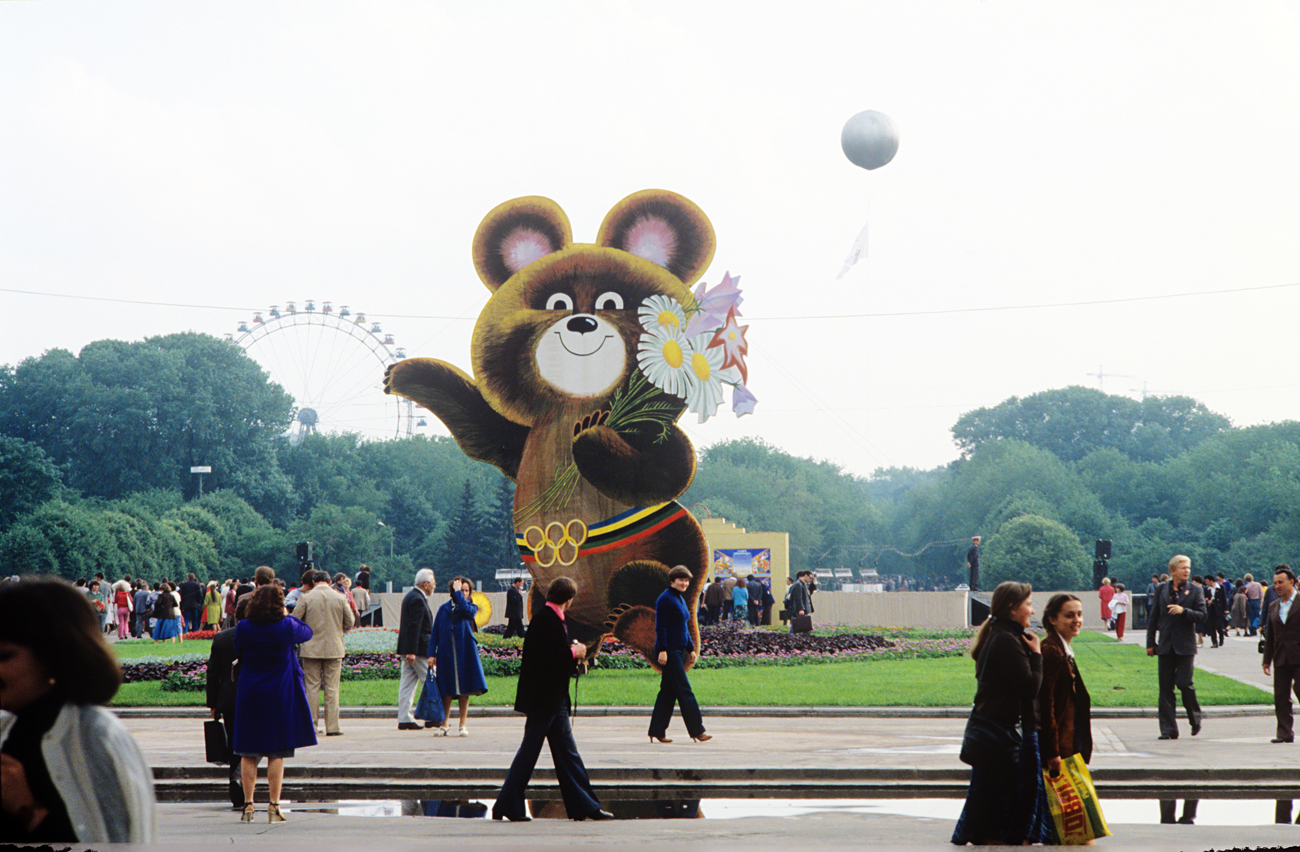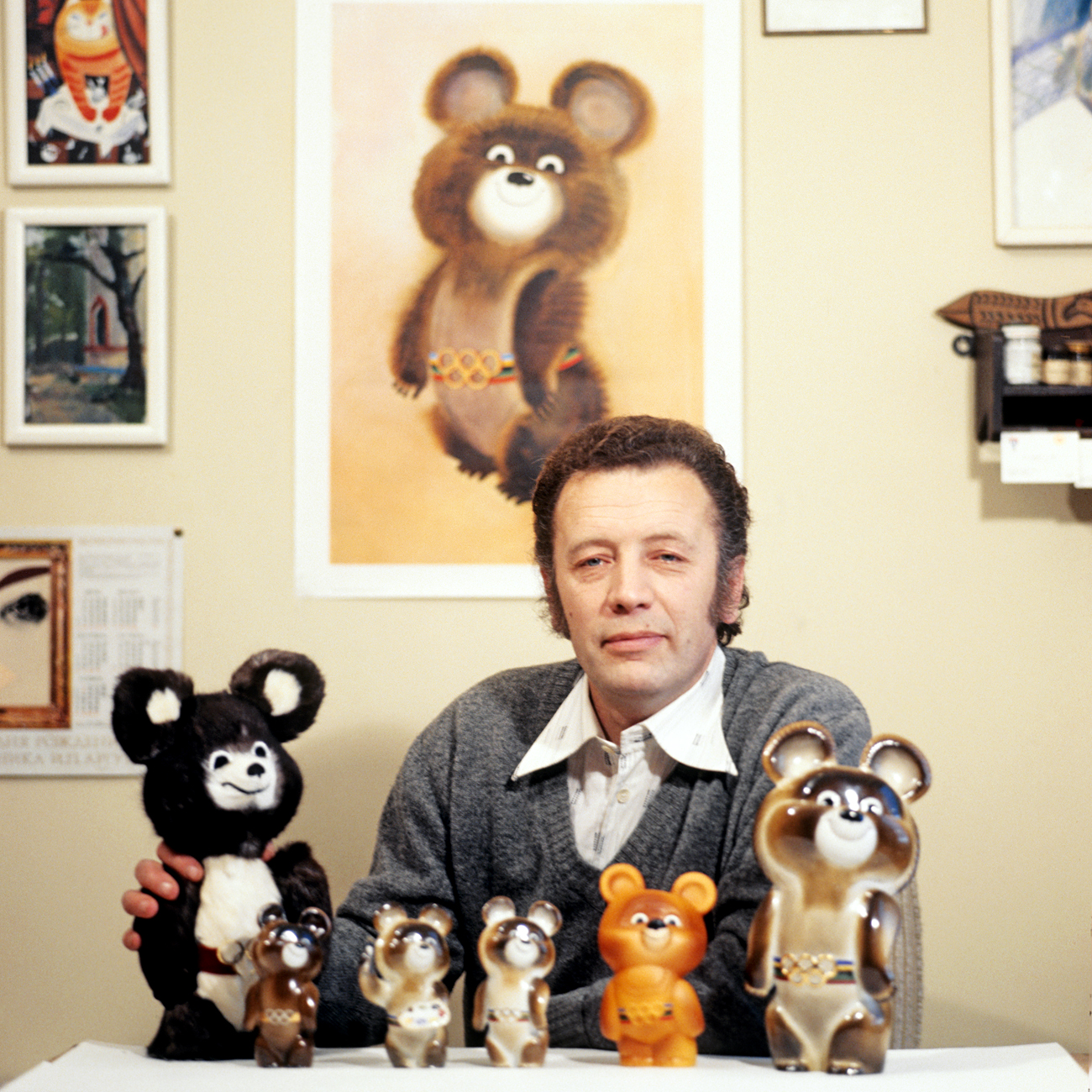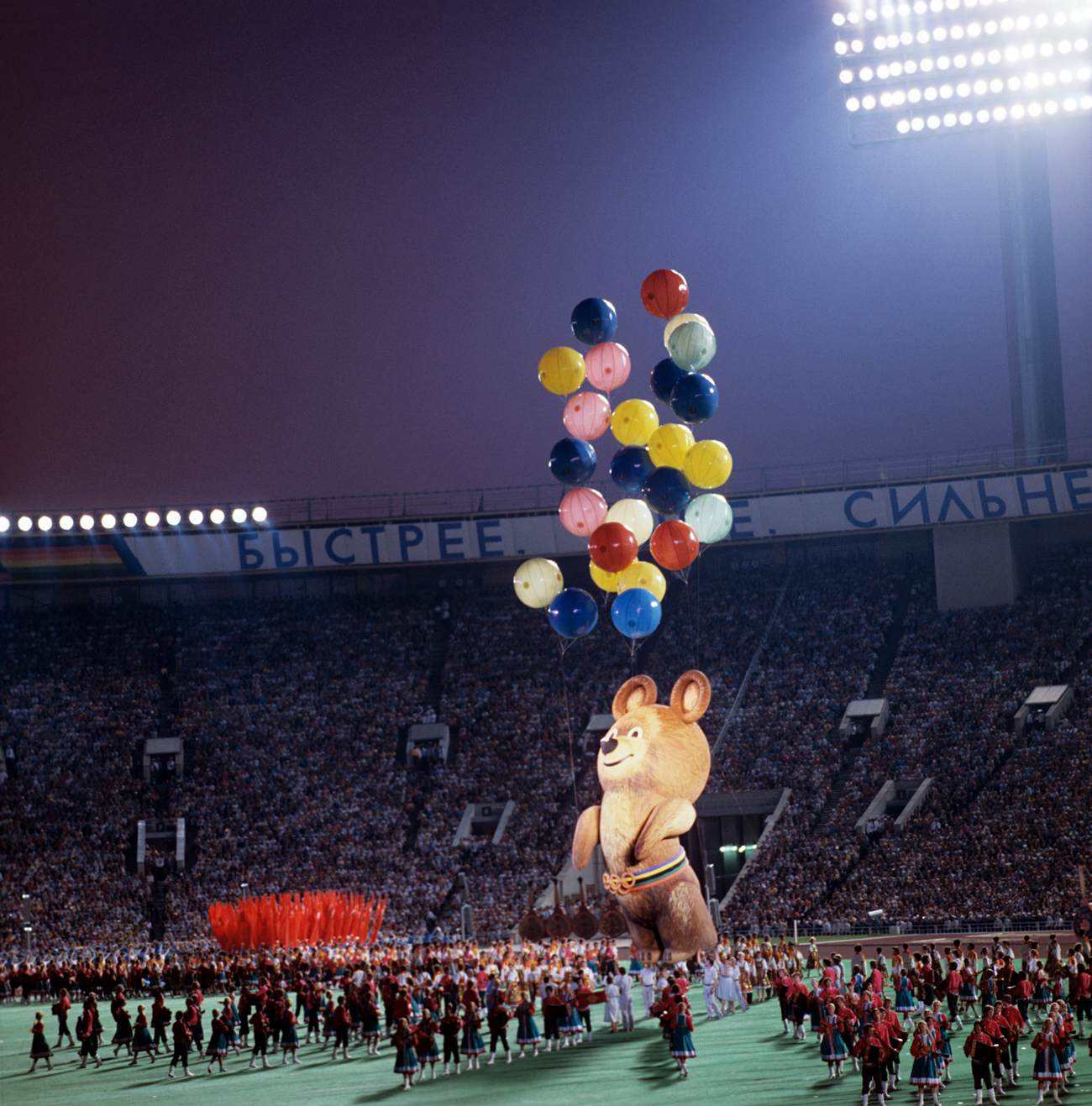Bear necessity: Designing a mascot for the 1980 Moscow Olympics

Olympic Mishka, the mascot of the 1980 Summer Olympic Games in Moscow, welcomes visitors of Gorky Central Park. Moscow, USSR.
Alexei Poddubny/TASSRossiyskaya Gazeta: How did the story of the Olympic mascot begin?
Viktor Chizhikov: I then worked at a children's publisher and knew nothing about the competition for the Olympic mascot. It all happened by chance. My friend was met by one of the leaders of the Russian Union of Artists, who told him about the competition, that the Olympic Committee had already received 40,000 versions of bears, but the jury could not find a suitable one.
And he suggested that children's artists also take part. The time limit was one month. In about a week, we drew pencil sketches – more than 100 bears – and took them to the Olympic Committee. After some time, my wife met my friend in the street and asked him: "Why are you so sad?" He answered: "I just found out that Vitka's [a diminutive of Viktor] bear passed, and mine didn't."
 Viktor Chizhikov. Source: Vyacheslav Un Da-sin/TASS
Viktor Chizhikov. Source: Vyacheslav Un Da-sin/TASS
RG: So they chose your sketch. And were there any special instructions afterward from the Communist Party to adjust the image?
V. C.: I had to draw a bear that was unlike any other bear drawn by thousands of artists. This is a difficult task, the one that was facing me. Our country should not have been in any case accused of plagiarism. And Mishka, thank God, passed the exam.
RG: Your Mishka is very different from those represented by the foreign press.
V. C.: A Russian bear was often used in political cartoons. It was an obscene, boorish bear. But I wanted to make an optimistic image, for it to appeal to the best human feelings. It took me long to convey the "Olympic" quality of Mishka. At first I thought of putting a multicolored cap on it – with each wedge of the color of the flag of the Olympics participating countries. But because of the cap, you could not see the ears. Hang medals around the neck? But they hang them on all mascots. The beaver in Canada also had medals.
They said I copied Mishka from my housemate, composer Valery Zubkov. I didn’t argue, a good man. In reality, I saw Mishka with an Olympic belt in a dream. It happened many times when I was working on an image. The main thing is to instantly wake up and draw it, or you forget it.
In August 1977, there was an exhibition in Moscow, where 64 bears were presented. The president of the IOC, Lord Michael Killanin, came. He looked and looked and suddenly stopped right by my work and said: "This is it!" I was told this by one journalist.
I got a call from the Olympic Committee only after a month, probably they were waiting for the party's approval: "Congratulations, your bear has been approved." That's the whole biography of the bear. However, it cost me a lot of nerves.
 Olympic Mishka flying away from the Lenin Central Stadium during the closing ceremony of the 22nd Summer Olympic Games. Source: Semyon Maisterman and Nikolai Naumenkov/TASS
Olympic Mishka flying away from the Lenin Central Stadium during the closing ceremony of the 22nd Summer Olympic Games. Source: Semyon Maisterman and Nikolai Naumenkov/TASS
RG: You mean the copyright registration process?
V. C.: Nothing was legally formalized. I was asked to sign documents affirming that I had carried out the work under the title of "Funny Little Bear."
They gave me 1,300 rubles in the Olympic Committee's accounts department and some more money came to my bank account. In total, I received about 2,000 rubles [the average monthly salary in the USSR in 1980 was 120 rubles – RBTH].
The mascot shouldered over 90 percent of the Olympic propaganda. But that's not the main thing. After the 1980 Olympics, the world's attitude toward us significantly improved, and Mishka played a considerable role in this. I had an unusual mission, and I did a good job.
It was a rare stroke of luck. I love it like my own child. And I am very grateful to the director of the 1980 Olympics, Tumanov, for the great image of the bear in the stands. Remember when a tear rolls down its cheek? The likeness wasn’t distorted, which can't be said about the rubber Mishka that flew out of the stadium. I would set totally different proportions.
The image of Mishka was then replicated around the world. I wasn’t surprised when I saw it in a different guise: In the form of a bottle of perfume, for example, or on a box of matches. And in Prague, my Mishka promotes the Museum of Communism. It is depicted on a poster with a Kalashnikov assault rifle – although there is a hope for peace in the eyes of my Mishka.
Some merchant sailors told me that, when in Polynesia, they presented a poster with Mishka to a Papuan leader. Those were the places visited by [Russian explorer] Miklouho-Maclay. That's funny.
The article has been published in an abbreviated form. First published in Russian by Rossiyskay Gazeta.
Read more: Cheburashka: Fun facts about Russia's iconic furry character>>>
Subscribe to get the hand picked best stories every week
All rights reserved by Rossiyskaya Gazeta.
Subscribe
to our newsletter!
Get the week's best stories straight to your inbox